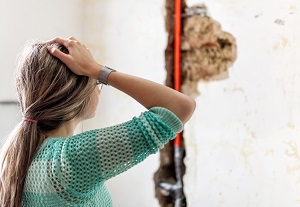
Your home’s plumbing pipes might need to be replaced, regardless of whether you recently moved into an old house or have lived there for some time. Although pipes have a long lifespan, there are a few indicators that it might be time for an upgrade. It’s crucial to know when to replace your plumbing, which is one of the most important parts of your home. Your understanding of when to replace or upgrade your plumbing pipes will be aided by Top Tier Plumbing and Rooter.
You may need to replace your pipes depending on the age of your home, the type of pipes that were originally installed, and how well they are currently functioning.
How Long, On Average, Do Your Pipes Last?
Even though your home’s plumbing and pipes won’t last forever, with routine maintenance and care, most pipe materials can last for several decades before they begin to deteriorate and need to be replaced. By inspecting your entire home, you can find out what materials are used to make your pipes. Any problems that develop could be a straightforward repair need or a sign that the pipes are getting close to the end of their useful lives depending on the plumbing material of your plumbing pipes.
The lifespan of pipes depends upon the material they are made of:
- Copper – 70-80 years
- Brass – 80-100 years
- Galvanized steel – 80-100 years
- Cast iron – 75-100 years
- PVC – mostly indefinitely
If you need clarification on the type of plumbing pipes in your home, ask the plumber to inspect them the next time they visit. Run the calculations to find the age of your pipes after that. It will provide you with a general idea of when you should consider replacing them.
Typical Warning Signs Your Plumbing Pipes Need to be Replaced
Water pressure is low.
Low water pressure at the sink or in the shower makes it difficult to pinpoint the exact problem. Simple plumbing obstructions or leaks in your pipes can lower the water pressure. Additionally, rotting wood and mold growth can be caused by a damaged foundation, framing, and leaking pipes. Additionally, mold has a negative impact on the quality of your air, which is only possible to address with additional tools. To begin, you might use a typical drain cleaner to see if that solves the issue. When problems persist, you require the services of a plumber or another skilled expert.
Water Tarnishing
If urban systems supply your water, discolored water typically causes concern. This brown or dark water is brought on by pipes that have corroded due to water flowing through them. If you don’t remove mineral deposits from the water, the pressure in the pipes will rise. Continuous strain eventually causes the pipes to break, causing great harm. If you notice rust or corrosion, your pipes need immediate attention from an expert.
Corrosion
Do you believe that the plumbing in your house is prone to clogging? Consider taking into account the possibility that your pipes are internally corroding.
Corrosion is particularly likely to happen to galvanized steel pipes. Once corrosion starts, it will be soon that you need to repair your plumbing pipes to get the water flowing freely again.
Cracks
A cracked plumbing pipe will be fairly easy to spot. Water will emerge from the pipe as you watch it move through your plumbing system. Even if a plumbing pipe is hidden behind a wall or beneath a floor, you will only have to consider replacing it for a little while before you realize that you need to. It won’t take long for water to start seeping in from a cracked pipe and harming the wall or floor.
Any moist areas in your home should not be disregarded. If you’re not careful, it could signify a serious plumbing issue, resulting in water damage and mold growth.
Leaks
For a plumbing line to leak, there needs to be no crack. Plumbing pipes may also leak as a result of their connections being loose. There might not be much water dripping from your pipes when the leak first becomes apparent. However, if pressure is applied to a small leak, it could eventually become larger.
A plumber might be able to resolve a plumbing leak without replacing the pipes. However, experts might also suggest pipe replacement if the pipes are in a particularly bad condition.
Time For Expert Help
Do not ignore any of the aforementioned symptoms, and replace your plumbing pipes immediately. Your home’s water systems and general structure could suffer serious harm if you don’t do this. Even if you are unaware of any of the aforementioned symptoms and know that your pipes’ useful lifespan is drawing to a close, you should still replace them. Prior to significant problems emerging, prevention is crucial. Call (951) 475-6521 and speak to a specialist at Top Tier Plumbing and Rooter today.

